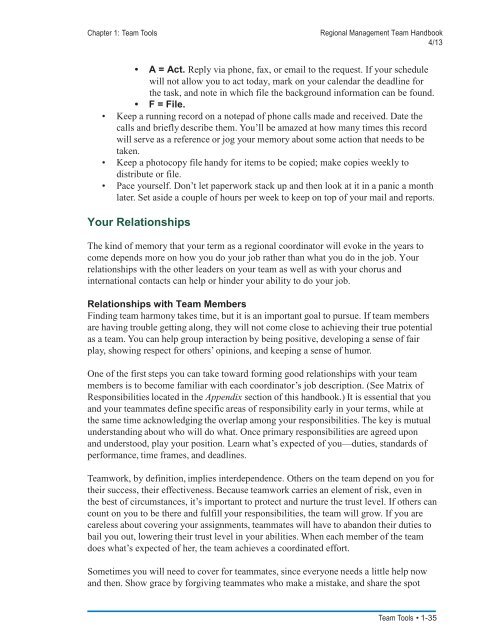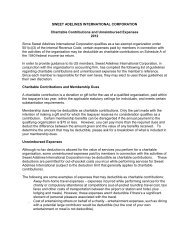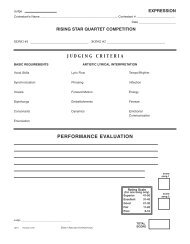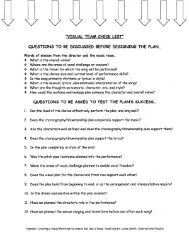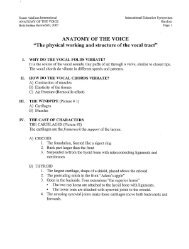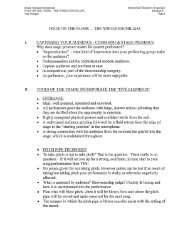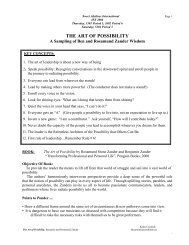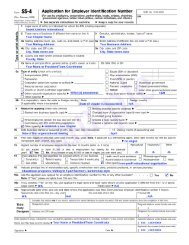Coordinator - Sweet Adelines International
Coordinator - Sweet Adelines International
Coordinator - Sweet Adelines International
You also want an ePaper? Increase the reach of your titles
YUMPU automatically turns print PDFs into web optimized ePapers that Google loves.
Chapter 1: Team Tools<br />
Regional Management Team Handbook<br />
4/13<br />
• A = Act. Reply via phone, fax, or email to the request. If your schedule<br />
will not allow you to act today, mark on your calendar the deadline for<br />
the task, and note in which file the background information can be found.<br />
• F = File.<br />
• Keep a running record on a notepad of phone calls made and received. Date the<br />
calls and briefly describe them. You’ll be amazed at how many times this record<br />
will serve as a reference or jog your memory about some action that needs to be<br />
taken.<br />
• Keep a photocopy file handy for items to be copied; make copies weekly to<br />
distribute or file.<br />
• Pace yourself. Don’t let paperwork stack up and then look at it in a panic a month<br />
later. Set aside a couple of hours per week to keep on top of your mail and reports.<br />
Your Relationships<br />
The kind of memory that your term as a regional coordinator will evoke in the years to<br />
come depends more on how you do your job rather than what you do in the job. Your<br />
relationships with the other leaders on your team as well as with your chorus and<br />
international contacts can help or hinder your ability to do your job.<br />
Relationships with Team Members<br />
Finding team harmony takes time, but it is an important goal to pursue. If team members<br />
are having trouble getting along, they will not come close to achieving their true potential<br />
as a team. You can help group interaction by being positive, developing a sense of fair<br />
play, showing respect for others’ opinions, and keeping a sense of humor.<br />
One of the first steps you can take toward forming good relationships with your team<br />
members is to become familiar with each coordinator’s job description. (See Matrix of<br />
Responsibilities located in the Appendix section of this handbook.) It is essential that you<br />
and your teammates define specific areas of responsibility early in your terms, while at<br />
the same time acknowledging the overlap among your responsibilities. The key is mutual<br />
understanding about who will do what. Once primary responsibilities are agreed upon<br />
and understood, play your position. Learn what’s expected of you—duties, standards of<br />
performance, time frames, and deadlines.<br />
Teamwork, by definition, implies interdependence. Others on the team depend on you for<br />
their success, their effectiveness. Because teamwork carries an element of risk, even in<br />
the best of circumstances, it’s important to protect and nurture the trust level. If others can<br />
count on you to be there and fulfill your responsibilities, the team will grow. If you are<br />
careless about covering your assignments, teammates will have to abandon their duties to<br />
bail you out, lowering their trust level in your abilities. When each member of the team<br />
does what’s expected of her, the team achieves a coordinated effort.<br />
Sometimes you will need to cover for teammates, since everyone needs a little help now<br />
and then. Show grace by forgiving teammates who make a mistake, and share the spot<br />
Team Tools • 1-35


